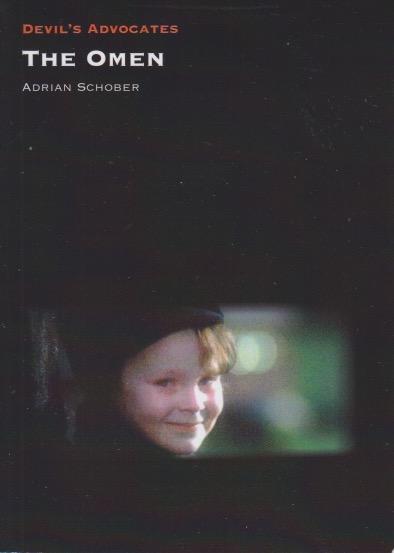
The Devil’s Advocates series, as you learn from pitching and writing one, promotes alternative views on horror films. Adrian Schober’s treatment of The Omen doesn’t disappoint. Each time I read one of these little volumes I’m always amazed at how many ideas can be packed into such a small space. Schober’s take on the film is that Damien’s role is left intentionally ambiguous. There was disagreement between the screenwriter (David Seltzer) and the director (Richard Donner) on that point. Donner wanted it to be left up to the audience whether Damien was the Antichrist or not. Seltzer, not being a believer himself, wanted to be clear that the boy was evil. As portrayed in the final film, however, Damien seems awfully vulnerable, in retrospect. (I rewatched the movie before reading the book.)
I’ve seen The Omen a number of times. It has never been my favorite movie and I actually read the book (a novelization) before I ever saw the film. Having grown up as a fundamentalist, I believed that we were in the end times (which only really seemed likely starting in November 2016). The movie had to wait until I was an adult (I read the novelization when the film first came out). I can see the ambiguity now, having read this book. There remain, however, some things difficult to explain about the presentation—how Fr. Brennan knows Katherine is pregnant and that Damien will be the cause of her miscarriage. The extreme coincidence of both the priest and the boy having the same birthmark that looks like 666. And that someone would go through the trouble of burying a jackal and Thorn’s actual son in an obscure Etruscan cemetery just in case the Ambassador ever got suspicious and wanted to check it out.
Interestingly, different markets altered the ending, enhancing the ambiguity. The final scene had originally been shot with three coffins rather than two, and that changes things, doesn’t it? Movies are, of course, subject to interpretation. Any form of media is. The fact remains that many viewers flocked from theaters believing Damien was the Antichrist. Schober’s book would give pause, however, about rushing to conclusions. The idea for the movie was suggested initially by a marketer who was a true believer in premillennial dispensationalism (essentially the worldview of Keith Jennings in the movie), and some Catholic officials objected. Different Christian sects have very different interpretations about the end of the world. And this movie is subject to different interpretations. This brief book might just change your mind.
